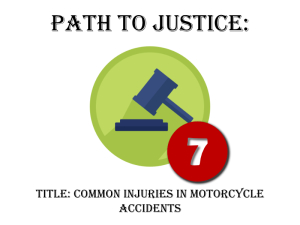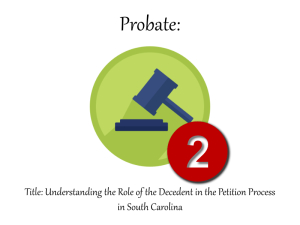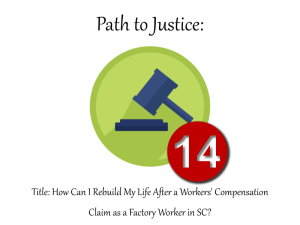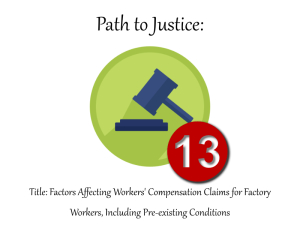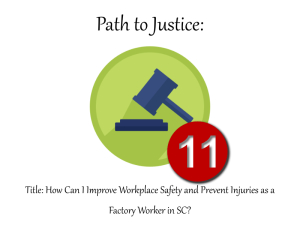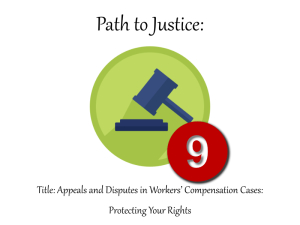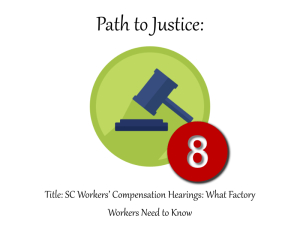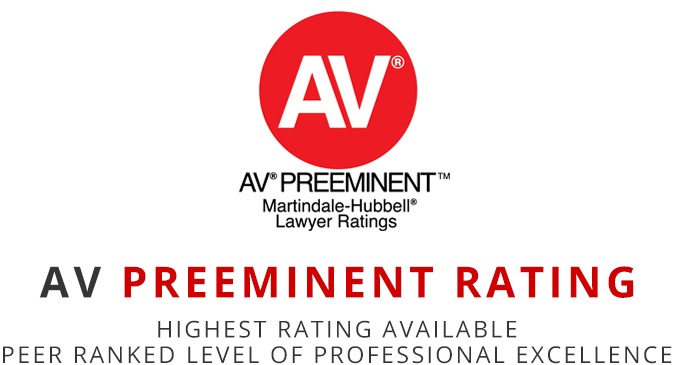Introduction
Motorcycle accidents can result in a range of injuries, some of which may have lasting impacts on the victim's life. Understanding the common injuries in motorcycle accidents can help riders take preventive measures
and be aware of the signs and symptoms to look for after an accident. This article explores the various injuries often sustained in motorcycle accidents and offers guidance on immediate and follow-up care.
- Head and Brain Injuries
- Concussions and Traumatic Brain Injuries (TBI): Even minor accidents can result in concussions or more severe TBIs. Wearing a helmet can significantly reduce the risk and severity of head injuries.
- Symptoms and Care: Symptoms may include headaches, dizziness, confusion, and memory issues. Immediate medical attention and ongoing monitoring are crucial.
- Road Rash
- Causes and Severity: Road rash occurs when a rider slides across the pavement, causing abrasions to the skin. The severity can range from mild to severe, potentially requiring surgical intervention.
- Prevention and Treatment: Wearing appropriate protective gear, including jackets, pants, and gloves, can help prevent road rash. Proper wound cleaning and medical attention are essential for treatment.
- Bone Fractures
- Common Fracture Sites: The impact of a motorcycle accident often results in fractures, commonly affecting the arms, legs, and pelvis.
- Treatment and Recovery: Fractures may require surgery, casting, and physical therapy. Early medical intervention can improve recovery outcomes.
- Spinal Cord Injuries
- Potential for Paralysis: Spinal cord injuries can have devastating consequences, potentially leading to partial or complete paralysis.
- Immediate and Long-Term Care: Immediate medical attention is vital, and long-term care and rehabilitation may be necessary.
- Internal Injuries
- Organs at Risk: The force of a motorcycle accident can cause internal injuries to organs such as the lungs, liver, and kidneys.
- Diagnosis and Treatment: Internal injuries may not show immediate symptoms, making prompt medical evaluation after an accident essential for timely diagnosis and treatment.
- Psychological Trauma
- Post-Traumatic Stress Disorder (PTSD): Motorcycle accident victims may experience psychological trauma, including PTSD, anxiety, and depression.
- Seeking Support: Mental health support and counseling are crucial components of recovery, helping victims process the emotional impact of the accident.
- Lower Extremity Injuries
- Knee and Leg Injuries: Injuries to the knees, legs, and feet are common and can range from bruises and lacerations to complex fractures.
- Protective Gear and Medical Care: Wearing protective gear, including knee and shin guards, can help prevent lower extremity injuries. Prompt medical care can aid in recovery and prevent complications.
Conclusion
Awareness of the common injuries in motorcycle accidents empowers riders to take preventive measures and seek timely medical attention after an accident. Prioritizing safety, wearing appropriate protective gear,
and understanding the potential injuries can contribute to safer riding experiences and improved outcomes in the event of an accident.
Note: This article provides a general overview of common injuries in motorcycle accidents. It is not a substitute for professional medical advice, diagnosis, or treatment. Always seek the advice of your physician or
other qualified health providers with any questions you may have regarding a medical condition.
In the world of probate law, the term 'decedent' refers to the individual who has passed away. In the context of a petition for determination of heirs, the decedent plays a central role, even
posthumously. This article aims to provide an advanced understanding of the decedent's role in the petition process in South Carolina.
When a person passes away, their estate, which includes all their assets and liabilities, is subject to the probate process. This process is initiated by the filing of a petition for appointment
of personal representative, a formal document that provides the court with necessary information about the decedent, their estate, and potential heirs.
The decedent's role in the petition process is primarily defined by their actions before death. For instance, if the decedent had a valid will, it would guide the distribution of their assets.
However, if the decedent died intestate, meaning without a valid will, the court would follow South Carolina's intestacy laws to determine the rightful heirs.
The county where the decedent resided at the time of death typically has jurisdiction over the probate process. The personal representative of the estate, often appointed in the decedent's
will or by the court, is responsible for filing the petition in the appropriate county court.
A Petition for Determination of heirs is for the circumstance in which an estate has not been probated within ten years of the time of death of decedent. In that event, the estate is time-barred
from the regular probate process, including an appointment of a personal representative. This means assets of the estate cannot be distributed, though, at ten years, it is unlikely any assets
would be left beyond potential interest in real property. An interest in real property and potentially a non-probate beneficiary transfer (not subject to the ten-year rule) would be the reason
for Determination of Heirs, as that gives a court order designating the transfer of interest in real estate or a transfer outside probate.
The petition process involves several steps that must be completed in a specific order. These steps include filing the petition, notifying interested parties, scheduling a hearing, and finally, the
court's determination of heirs. Each step has its own set of requirements and formalities that must be adhered to.
The decedent's role extends beyond the initiation of the petition process. Their actions, or lack thereof, can significantly impact the process. For instance, if the decedent failed to maintain
proper records of associated relative birth certificates, death certificates, and marriage certificates, it could complicate the process as those records are necessary for this process.
In conclusion, the decedent plays a crucial role in the petition process for determination of heirs in South Carolina. In our next article, we will delve deeper into the importance of a hearing
in the petition process. Stay tuned!
In the realm of probate law, one term you might come across is a “petition for determination of heirs.” This legal process, particularly relevant in South Carolina, is a crucial step
in the administration of a decedent's estate. But what does it entail, and why is it so important? In this article, we'll delve into these questions, shedding light on the
extraordinary deals and processes involved in a petition for determination of heirs in South Carolina.
First, the reason you would file the Petition versus filing an estate in probate (which accomplishes the same end as the Petition in establishing heirs/devisees and further end of
distributing assets of the estate) is that more than 10 years have passed since the death of the person with the estate. It’s important to file an estate with probate within 10
years, as that is not only easier than the determination of heirs but does allow for distribution of assets. The Petition is for the circumstance in which that deadline was missed.
Importantly, it allows for subsequent administration of the heirs of the decedent who die after the decedent with the determination of heirs.
The probate court plays a pivotal role in the petition process. When a person passes away, their estate—comprising all their assets and liabilities—falls under the jurisdiction of the
probate court. The court oversees the administration of the estate, ensuring that all debts are paid, and remaining assets are distributed to the rightful heirs.
The petition for determination of heirs is a formal request made to the court to officially recognize the decedent's heirs. This process is particularly important when the decedent has
died intestate, meaning without a valid will in place. In such cases, the court follows the state's intestacy laws to determine who the rightful heirs are.
Heirs, in this context, are the individuals legally entitled to inherit from the decedent. They can include spouses, children, parents, siblings, or other relatives, depending on the state's
laws. In South Carolina, the determination of heirs is guided by the South Carolina Probate Code.
The petition process begins with the filing of a formal document, typically by the estate's personal representative. This document, known as the petition for determination of heirs,
provides the court with necessary information about the decedent, their estate, and potential heirs. The court then reviews the petition, and if everything is in order, a hearing is
scheduled.
The hearing is a crucial part of the process. It provides an opportunity for interested parties to present their claims and for the court to make a formal determination of heirs.
Once the court has made its decision, titling of real property can be done properly with legal interest of parties who should have received real property. In other words, it allows for
a legal chain of title. It can also be used in some cases for accounts that require legally determined heirs as beneficiaries. Unfortunately, determination of heirs does not allow for
the normal probate administration and distribution of assets of the decedent (another reason to attempt to file the estate within 10 years of death), though usually after 10 years,
the only issue is with real estate titling.
In conclusion, the petition for determination of heirs is a critical step in the probate process in South Carolina if 10 years have passed without the estate being filed. It ensures that real
estate can be properly titled and subsequent estates can be distributed according to law and that the rightful heirs receive their due inheritance. In our next article, we will delve deeper
into the role of the decedent in the petition process. Stay tuned!
Getting back on your feet after a workplace injury can be a challenging and often daunting task. You've navigated the workers' compensation process, but now you're facing the reality of moving
forward and rebuilding your life post-claim. Here are some important steps to help you get back on track.
Physical Rehabilitation
The severity and nature of your injury will determine your physical recovery process. It's crucial to follow the prescribed physical therapy or rehabilitation program from your healthcare provider.
Consistent participation can improve your functionality and health, potentially hastening your return to work if possible.
Vocational Rehabilitation
If your injuries prevent you from returning to your previous role, you may need vocational rehabilitation. These services, often covered by workers' compensation, can help you gain new skills for
different types of work. Don't hesitate to explore this option with your compensation lawyer or claims adjuster.
Mental Health Support
Dealing with an injury and its aftermath can take a toll on your mental health. Consider seeking support from mental health professionals. Coping strategies can help manage stress, anxiety, and
other emotional challenges associated with your injury and recovery process.
Financial Planning
After settling your workers' compensation claim, it's time to reassess your financial situation. With the help of a financial advisor, you can plan effectively for your future, taking into account your
current earning capacity and future medical expenses.
Legal Advice
Even after your claim, keeping in touch with your legal representative is advisable. They can provide guidance regarding any future medical needs related to your injury and ensure you understand
the long-term implications of your settlement.
Support Networks
Remember, you're not alone in this journey. Leverage your personal support networks - family, friends, and community resources. There are also support groups for individuals who've experienced
workplace injuries, providing a platform to share experiences and gain insights.
Continuing Education
Consider furthering your education or training. This can open up new employment opportunities and help with job security in the future. Many organizations provide scholarships or financial aid for
injured workers seeking to enhance their skills.
Conclusion
Adjusting to life after a workers' compensation claim can present challenges. This transition often requires strategic planning and the right resources. More importantly, it necessitates the support
of a dedicated legal team that understands the complexities of such claims. The Bill Connor Law Firm can provide that unwavering support, ready to assist as you navigate this new phase of your
life. If you need help managing your workers' compensation claim or have questions about the process, know that The Bill Connor Law Firm stands beside you. Remember, it's your fundamental
right to work in a safe environment and receive full and fair compensation for any injuries sustained.
When factory workers in South Carolina file for workers' compensation, several factors can impact the outcome of their claims. Understanding these factors is crucial to ensure you receive
fair compensation for your injuries. In this article, we will explore the key factors that can affect workers' compensation claims for factory workers, including the impact of pre-existing
conditions.
Nature and Severity of the Injury
The nature and severity of the injury sustained in the workplace play a significant role in determining the workers' compensation benefits. Severe injuries that result in long-term
disabilities or permanent impairments may lead to higher compensation amounts.
Causation and Work-Relatedness
For a workers' compensation claim to be successful, it is essential to establish that the injury occurred in the course of employment. The injury must be work-related, arising out of and
during the performance of work duties.
Timely Reporting
Promptly reporting workplace injuries to the employer is vital. Delayed reporting may raise questions about the validity of the claim and could result in denial or delay of benefits.
Pre-existing Conditions
Pre-existing medical conditions can complicate workers' compensation claims. If a pre-existing condition is aggravated or worsened by a workplace injury, it may still be eligible
for compensation. However, determining the proportion of the injury attributable to the workplace accident versus the pre-existing condition can be complex.
Proper Medical Documentation
Comprehensive and accurate medical documentation is essential for a successful workers' compensation claim. Medical records must clearly outline the diagnosis, treatment plan,
and the extent to which the injury impacts the worker's ability to perform job duties.
Compliance with Medical Treatment
Consistently following the prescribed medical treatment and attending all required medical appointments is crucial. Failure to comply with treatment may be used as a basis to
question the severity of the injury and the need for compensation.
Return-to-Work Plan
If you are cleared to return to work with restrictions or limitations, your employer may offer a modified work arrangement. Complying with the return-to-work plan is crucial to
receiving partial disability benefits, if applicable.
Employability and Vocational Rehabilitation
For workers with severe injuries preventing them from returning to their previous job, vocational rehabilitation may be provided to help transition to suitable alternative employment.
Attorney Representation
Having legal representation from an experienced workers' compensation attorney can significantly impact the success of your claim. An attorney can navigate the complexities of the
workers' compensation process, ensure your rights are protected, and advocate for fair compensation on your behalf.
Conclusion
Workers' compensation claims for factory workers are influenced by several crucial factors that can impact the success of their case. The type and severity of the injury, whether it
occurred while performing work duties, pre-existing medical conditions, proper medical documentation, and following the prescribed treatment, all play pivotal roles. To navigate
these complexities and ensure your rights are protected, it's vital to seek the expertise of a skilled workers' compensation attorney. If you've been injured at work, call the Bill Connor
Law Firm today to see how we can assist you in this process. Stay informed and protect your rights!
For factory workers in South Carolina, sustaining a workplace injury can be a challenging and overwhelming experience. Navigating the process from injury to workers 'compensation settlements involves a series
of crucial steps. Understanding the chain of events is essential to ensure your rights are protected and you receive fair compensation. In this article, we will outline the key steps involved in the process, from
injury to workers' compensation settlements for factory workers.
- Promptly Report the Injury: As soon as a workplace injury occurs, report it to your supervisor or employer. Timely reporting is essential for initiating the workers' compensation claim process. Failure to
report the injury promptly may result in claim denial or delays.
- Seek Medical Attention: Seeking prompt medical attention after an injury is vital for your well-being and your claim. Visit an authorized medical provider designated by your employer or the workers'
compensation insurer. Proper documentation of your injuries and treatment is crucial for the claim's success.
- File a workers' Compensation Claim: Once you've reported the injury and received medical attention, file a workers' compensation claim with your employer or their insurance carrier. Your claim should
include details of the injury, the accident's circumstances, and any medical treatments received.
- Investigate the Claim: Upon receiving your claim, the workers' compensation insurer will investigate the incident and assess the extent of your injuries. This investigation may include reviewing medical
records, interviewing witnesses, and gathering relevant evidence.
- Determination of Benefits: Based on the investigation's findings, the insurer will determine the eligibility and level of benefits you are entitled to receive. These benefits may include medical expenses
coverage, temporary disability benefits, and compensation for permanent disability, if applicable.
- Negotiations and Settlement: In some cases, the insurer may offer a settlement to resolve the claim. An experienced workers' compensation attorney can help you assess the adequacy of the settlement
and negotiate for fair compensation if necessary.
- Dispute Resolution (If Needed): If there is a disagreement over benefits or the settlement amount, you may need to participate in dispute resolution processes, such as mediation or hearings. Your attorney
will represent you and advocate for your best interests during these proceedings.
- Receiving Compensation: Once an agreement is reached or a decision is made, you will receive the compensation to which you are entitled. This may cover medical expenses, lost wages, and disability benefits,
depending on the circumstances of your case.
Conclusion: Navigating the chain of events from injury to workers' compensation settlements requires diligence, cooperation, and understanding of the legal process. By promptly reporting the injury, seeking medical
attention, filing a claim, and cooperating with the investigation, factory workers can protect their rights and ensure a smoother claims process. Enlisting the help of an attorney, such as Bill Connor of The Bill Connor
Law Firm in Orangeburg, SC, can provide invaluable guidance and advocacy throughout the process. Remember, understanding the steps involved is essential for securing fair compensation and moving forward after
a workplace injury.
As a factory worker in South Carolina, ensuring a safe working environment is vital to preventing injuries and maintaining your well-being. Workplace safety is a collective effort involving employers
and employees working together to identify and address potential hazards. In this article, we will explore essential strategies and practices that factory workers can adopt to improve workplace
safety and prevent injuries in SC.
Stay Informed and Trained
Stay informed about safety regulations, policies, and procedures implemented by your employer. Attend safety training sessions regularly and keep up-to-date with any changes or updates.
Knowledge is a powerful tool in preventing accidents and maintaining a safe working environment.
Use Proper Personal Protective Equipment (PPE)
Always use the appropriate Personal Protective Equipment (PPE) provided by your employer. PPE, such as helmets, safety glasses, gloves, and earplugs, can significantly reduce the risk of injuries
in hazardous work areas.
Report Unsafe Condition
If you identify any unsafe conditions, equipment malfunctions, or potential hazards, promptly report them to your supervisor or the appropriate authority. Timely reporting can lead to corrective
actions and prevent accidents from occurring.
Practice Proper Lifting Techniques
Factory work often involves heavy lifting, which can lead to musculoskeletal injuries. Practice proper lifting techniques, such as bending at the knees and keeping the load close to your body, to avoid
strains and sprains.
Avoid Taking Shortcuts
Adhere to established safety procedures and avoid taking shortcuts to complete tasks more quickly. Cutting corners can lead to accidents and jeopardize your safety and the safety of others.
Stay Alert and Focused
Maintain focus on your tasks and avoid distractions that can compromise your safety. Being attentive and alert can help you respond quickly to potential dangers and prevent accidents.
Promote a Culture of Safety
Encourage a culture of safety among your coworkers by leading by example. Engage in safety discussions, participate in safety committees, and support initiatives aimed at improving workplace safety.
Use Equipment Properly
Use all equipment, machinery, and tools according to manufacturer guidelines and safety instructions. Mishandling equipment can lead to severe accidents and injuries.
Take Breaks and Rest
Fatigue can increase the risk of workplace accidents. Take regular breaks and rest when needed to ensure that you remain alert and focused throughout your workday.
Participate in Safety Training Drills
Participate in safety training drills, such as fire drills and emergency evacuation procedures. Being familiar with these protocols can save valuable time in case of an actual emergency.
Conclusion: Improving workplace safety and preventing injuries is a shared responsibility for factory workers and employers in South Carolina. By staying informed and trained, using proper Personal
Protective Equipment (PPE), reporting unsafe conditions, practicing safe lifting techniques, avoiding shortcuts, and promoting a culture of safety, factory workers can significantly reduce the risk of
workplace accidents.
Ensuring safety in factories and strict compliance with safety procedures is of paramount importance not only from an ethical standpoint but also from a legal perspective. Factory owners and employers are
legally obligated to provide a safe working environment for their employees, adhering to state and federal occupational safety regulations. Failure to prioritize workplace safety can lead to potential legal
liabilities and consequences. Additionally, factory workers have the legal right to report safety concerns and seek workers' compensation benefits in case of workplace injuries resulting from safety violations.
Understanding and upholding safety measures not only protect workers but also safeguard employers from potential legal disputes. By collectively committing to workplace safety, factory workers can help
create a safer and more productive work environment for everyone involved.
When factory workers in South Carolina sustain workplace injuries, they are entitled to seek workers’ compensation benefits to cover medical expenses, lost wages, and other related costs.
While the workers’ compensation system is designed to protect injured workers, navigating the claims process can be complex and overwhelming. As a factory worker seeking workers’
compensation, understanding why legal representation is crucial can significantly impact the outcome of your case. In this article, we will explore the importance of legal representation for
factory workers in SC seeking workers' compensation.
Understanding Workers' Compensation Laws
Workers' compensation laws in South Carolina can be intricate, and they are subject to frequent changes. A knowledgeable workers' compensation attorney stays up-to-date with these laws
and understands how they apply to different scenarios. With their expertise, they can guide you through the process and ensure that you fully understand your rights and entitlements under
the law.
Protecting Your Rights and Interests
Insurance companies and employers may try to minimize the compensation they offer to injured workers to protect their interests. Having legal representation ensures that your rights are
protected and you have an advocate who is solely focused on securing the best outcome for you. Your attorney will negotiate with the insurance company on your behalf and fight to
ensure you receive fair compensation for your injuries and losses.
Gathering and Presenting Evidence
A successful workers' compensation claim relies heavily on the presentation of compelling evidence. To build a strong case, your attorney will help you gather and organize all relevant
documentation, including medical records, witness statements, and expert opinions. They know which evidence is crucial to substantiate your claim and will skillfully present it during
negotiations or hearings.
Navigating Complex Legal Procedures
The workers' compensation process involves various legal procedures, including filing deadlines, hearings, appeals, and potential disputes. An experienced attorney understands the
complexities of these procedures and will ensure that all necessary paperwork is filed correctly and within the required timeframes. This helps prevent delays or potential claim denials
due to procedural errors.
Advocating for Fair Compensation
Factory workers who represent themselves in workers' compensation cases may receive lower compensation offers from insurance companies. Having legal representation empowers you to
negotiate from a position of strength. Your attorney will assess the true value of your claim and pursue fair compensation that considers the full extent of your injuries and losses. Though
your attorney will receive a contingency fee (1/3 rd ), you will likely come out far ahead than if you attempt to go without an attorney.
Conclusion
Legal representation is of utmost importance for factory workers in South Carolina seeking workers' compensation benefits. With the expertise of a skilled workers' compensation attorney,
you gain a valuable ally who understands the complexities of the law, protects your rights and interests, gathers and presents strong evidence, navigates the legal procedures, and advocates
for fair compensation. If you are a factory worker pursuing a workers' compensation claim, consider seeking the guidance of an experienced attorney like Bill Connor to maximize your
chances of a successful outcome. Stay tuned for the next article, where we will discuss the significance of medical evaluations in workers' compensation claims. Stay informed!
Workers’ compensation claims for factory workers in South Carolina may encounter disputes or face challenges during the claims process. If you believe your workers’ compensation claim has
been unjustly denied, or if you are dissatisfied with the decision made in your case, it is essential to understand the appeals and dispute process. In this article, we will explore how factory
workers can protect their rights through the appeals and dispute process in workers’ compensation cases.
- Understanding the Appeals Process: Seeking Legal Representation: Navigating the appeals process can be complex and challenging, especially when dealing with legal and procedural
matters. It is strongly recommended to seek the guidance of a qualified workers’ compensation attorney. An experienced attorney can evaluate the circumstances of your case, provide
valuable legal advice, and represent your best interests throughout the appeals process.
- Filing the Appeal: To initiate the appeals process, you must file a Notice of Appeal with the South Carolina Workers’ Compensation Commission. This notice should outline the specific issues
being appealed and the relief sought. Your attorney will help you draft and submit the necessary documents to ensure compliance with the Commission’s requirements.
- Mediation and Informal Conferences: Before proceeding to a formal hearing, the commission may offer mediation or informal conferences to facilitate communication between the parties involved.
These alternatives aim to resolve disputes and reach a mutually agreeable settlement. Your attorney can advocate for your interests during these sessions and explore potential resolutions.
- Formal Hearing: If a resolution is not achieved through mediation or informal conferences, your appeal will proceed to a formal hearing before the Commission. During the hearing, both parties
will have the opportunity to present evidence, call witnesses, and make legal arguments. The commissioner will review the evidence and issue a decision.
- Further Appeals: If you remain dissatisfied with the commissioner’s decision, you have the option to seek further review by the Full Commission or the South Carolina Court of Appeals.
The process and requirements for further appeals vary, and having an attorney familiar with workers’ compensation law can be instrumental in presenting your case effectively.
Conclusion: Appeals and disputes in workers’ compensation cases are crucial moments for factory workers seeking fair compensation for their injuries. By understanding the appeals process, seeking
legal representation, promptly filing the appeal, participating in mediation or informal conferences, and presenting a strong case during the formal hearing, you can protect your rights and pursue the
compensation you deserve. If you are facing a workers’ compensation dispute, consider consulting with an experienced attorney like Bill Connor to ensure your interests are safeguarded throughout
the process. Stay tuned for the next article, where we will discuss the importance of timely reporting in workers’ compensation claims. Stay informed!
Workers’ compensation hearings play a crucial role in resolving disputes related to workplace injuries for factory workers in South Carolina. These hearings are formal proceedings conducted before the Workers’ Compensation
Commission to address issues such as the extent of injuries, medical treatment, and the level of compensation. As a factory worker involved in a workers’ compensation claim, understanding the key aspects of these hearings
is essential. In this article, we will explore what factory workers in SC need to know about workers’ compensation hearings.
- The Purpose of Workers’ Compensation Hearings: Workers’ compensation hearings are held to resolve disagreements between the injured worker and the employer’s workers’ compensation insurance carrier.
Common issues addressed during these hearings include the validity of the claim, the extent of the worker’s injuries, the adequacy of medical treatment, and the amount of compensation owed.
- Representation by a Workers’ Compensation Attorney: While factory workers have the right to represent themselves during workers’ compensation hearings, seeking representation from a skilled workers’
compensation attorney is highly advisable. A knowledgeable attorney can advocate for your rights, present evidence in your favor, and ensure that you receive fair treatment during the proceedings.
- Notice and Scheduling of Hearings: Factory workers involved in a workers’ compensation claim will receive notice of the hearing date, time, and location. These hearings are typically scheduled within a specific
timeframe after a dispute arises. It is crucial to attend the hearing as failure to appear may negatively impact your claim.
- Presenting Evidence and Witnesses: During the hearing, both parties have the opportunity to present evidence and call witnesses to support their case. As an injured factory worker, you and your attorney can
submit medical records, witness statements, and other documentation relevant to your claim. Your attorney can help prepare and organize the evidence to present a compelling case on your behalf.
- Decision by the Commissioner: The workers’ compensation commissioner presiding over the hearing will review all evidence presented and issue a decision. This decision will determine the resolution of the disputed
issues, which may include the amount of compensation you are entitled to, the continuation of medical treatment, and other related matters.
- Appeals Process: In some cases, either party may be dissatisfied with the commissioner’s decision and wish to challenge it. If this happens, there is a specific appeals process that allows for further review by the South
Carolina Workers’ Compensation Commission.
Conclusion: Workers’ compensation hearings are essential for factory workers in SC seeking fair resolution of their workplace injury claims. By understanding the purpose of these hearings, seeking representation from a workers’
compensation attorney, adhering to the hearing schedule, and presenting strong evidence, injured factory workers can navigate the process effectively. If you are facing a workers’ compensation hearing, consider consulting with an
experienced attorney like Bill Connor to protect your rights and pursue the compensation you deserve. Stay tuned for the next article, where we will discuss the significance of medical evaluations in workers’ compensation claims.
Stay informed!
